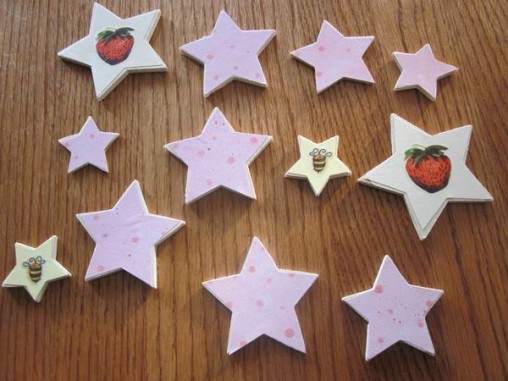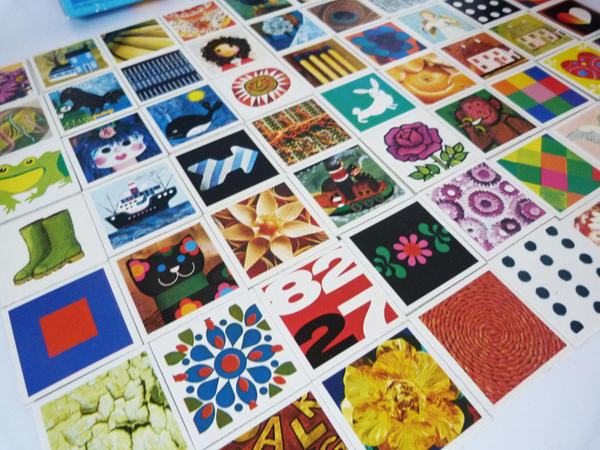Close your eyes and think about your first childhood echoes. Someone remembers their first day of school, someone else remembers their favourite toys and many other positive images.
We usually use videos and photos to keep forever special moments in our mind and hearts. Memory is one of the most important gifts we have. In fact we can overcome difficulties with a positive memory and we can also solve different problems thanks to it.
We can compare memory to an engine in which we always need to put fuel in. With children we have to do the same thing: we need to train their memory to sharpen their brain.
Memory is the ability to register, store, hold and retrieve information. Memory can be divided into some distinct sections that is, short term or working memory and long term memory. Working memory is a key aspect of how we deal with temporarily retained information, whereas long term memory or permanent memory concerns itself with all that we can do accurately and rapidly.
A good way to do that is to play kids’ memory games and help children do that.
If we want to play this kind of games we can use different methods:
- use existing games and toys
- train children’s brain using experience and routine
If you want to buy or search on the Internet for educational toys, first of all you have to take into account the age of the child. In fact the games level has to be equal to the age and education level of the child.
Children love videogames and it is possible to reconcile childhood passions with educational toys.
For example, if your child loves Mickey Mouse you can search on the Internet or create your own memory games in which this character is the protagonist.
Remember that kids’ attention is very short, so if the game is not attractive they are going to loose their interest soon!
At home you can create various interesting toys: for example you can cut 20 equal squares and draw them two by two with the image of the same character. After that you have to mix your new cards overturned and your child has to find the pairs turning two squares at time.If (s)he is not able to find a match (s)he has to reverse cards remembering where a particular character is. The first one who finds all the matches wins. (You can find different printable memory cards here http://www.memozor.com/memory-game-online-free/printable-memory-games)

Another way to train children’s brain is to transform dinner time into a funny game based on quizzes! For example: mum is the judge and dad and son are the competitors. When you start the game mum starts with the first question: “What time did school start today?” The person who gives the right answer gains one point. Than the game goes on with similar questions and the first one who gets 10 points wins the game.
You can also train children’s memory creating a little daily diary adorned with photos and cinema tickets and everything he/she wants.
When your child is able to write and read you can try to propose him/her words game. For example you write on a paper the first and the last letter of one word: your son/daughter has 10 attempts to guess it right.
For example:
F _ _ _ _ R if they says “Letter O” you write F _ O _ _R, and you go on until they find out that the word is “FLOWER”.
There are also many memory games to do with a group of children! At school teachers can play with their young students several games:
- the game of the name (In first school days students made their first acquaintance trying to remember their classmates names). Students sit in a circle and everyone says their name. Then one by one they try to repeat the names they remember; Teacher can also ask questions like: “who is Robert?” and students have to indicate him (6/7 year olds).
- remember the toys! A teacher takes some toys and shows them to the students. After 5 minutes she/he covers all the toys with a different piece of cloth and students have to say what toy is hiding under the piece of cloth (age recommended 5).
- repeat the words! Students sit in a circle and the first one says the name of an animal (for ex. dog), second one has to repeat the name of the animal his/her friend said including another animal (cat). The next one does the same thing repeating the names of the 2 animals including one more animal and so on. Do it again from the beginning in reverse (start at 7/8 years of age).
- music time! Listen to a song and try to repeat the sound or the words using musical instrument (musical games are useful for children with visual impairment) (4 year olds).
Personally I remember a very simple but interesting exercise I used to do while attending my preschool: I was 4 and my teacher gave me a paper with a drawing that I had to colour. The drawing represented a letter “B” and a banana. She gave me a yellow pencil and I started colouring. Since that day I fixed in my mind the letter B, which is the first in the word Banana and I also remember that banana is a yellow fruit.
Finally we have to remember that memory games are one of the best way to include and help children with special needs. Autism, blindness, down syndrome and many other disabilities can be helped with the power of games, especially memory games.
Imagine the biggest wardrobe you have ever seen, it represents our memory. If you are able to perfectly organize everything you want to put in it, your wardrobe will contain as much as possible, but if you are not able to organize the space, it would seem to be small and not capacious.
References:
- https://sites.google.com/site/memoryproblems01/the-importance-of-memory-games
- http://www.zimbio.com/Clarissa+Childs/articles/W0uH7f428rK/Brain+training+Reason+Memory+Games+Good+Children
- http://learningworksforkids.com/working-memory/?utm_expid=59331228-6.OeJ2MLvsRF-ZEWQ9Dqy2Jw.1&utm_referrer=http%3A%2F%2Fwww.google.com%2Furl%3Fsa%3Dt%26rct%3Dj%26q%3D%26esrc%3Ds%26source%3Dweb%26cd%3D2%26ved%3D0CDMQFjAB%26url%3Dhttp%253A%252F%252Flearningworksforkids.com%252Fskills%252Fworking-memory%252F%26ei%3DXz28UpevL-v8ygP21oK4BA%26usg%3DAFQjCNH6swVCUU03GqArpacOGJruyCs0yA%26sig2%3DkmwSHeanLKJeuB6siVk4tg
Find out some web memory games: http://mathandreadinghelp.org/articles/Remembering_the_Importance_of_Memory_(Games).html











